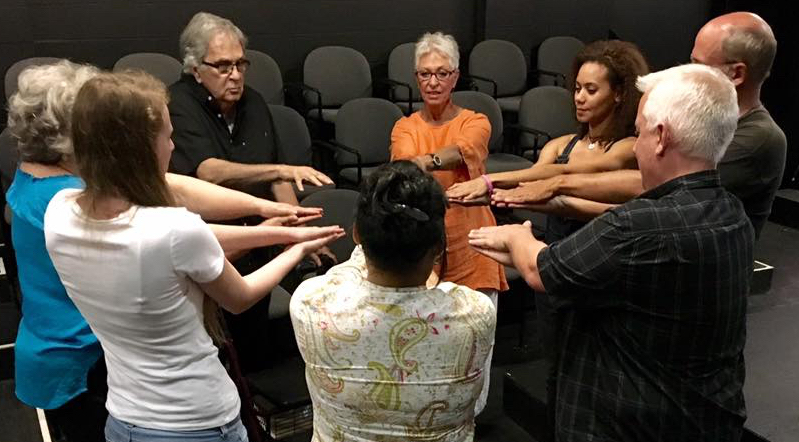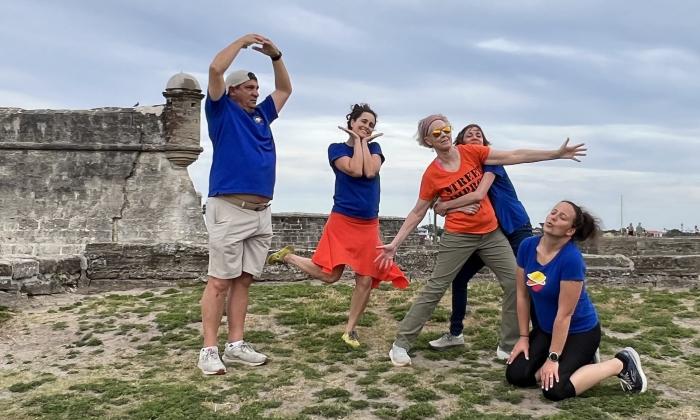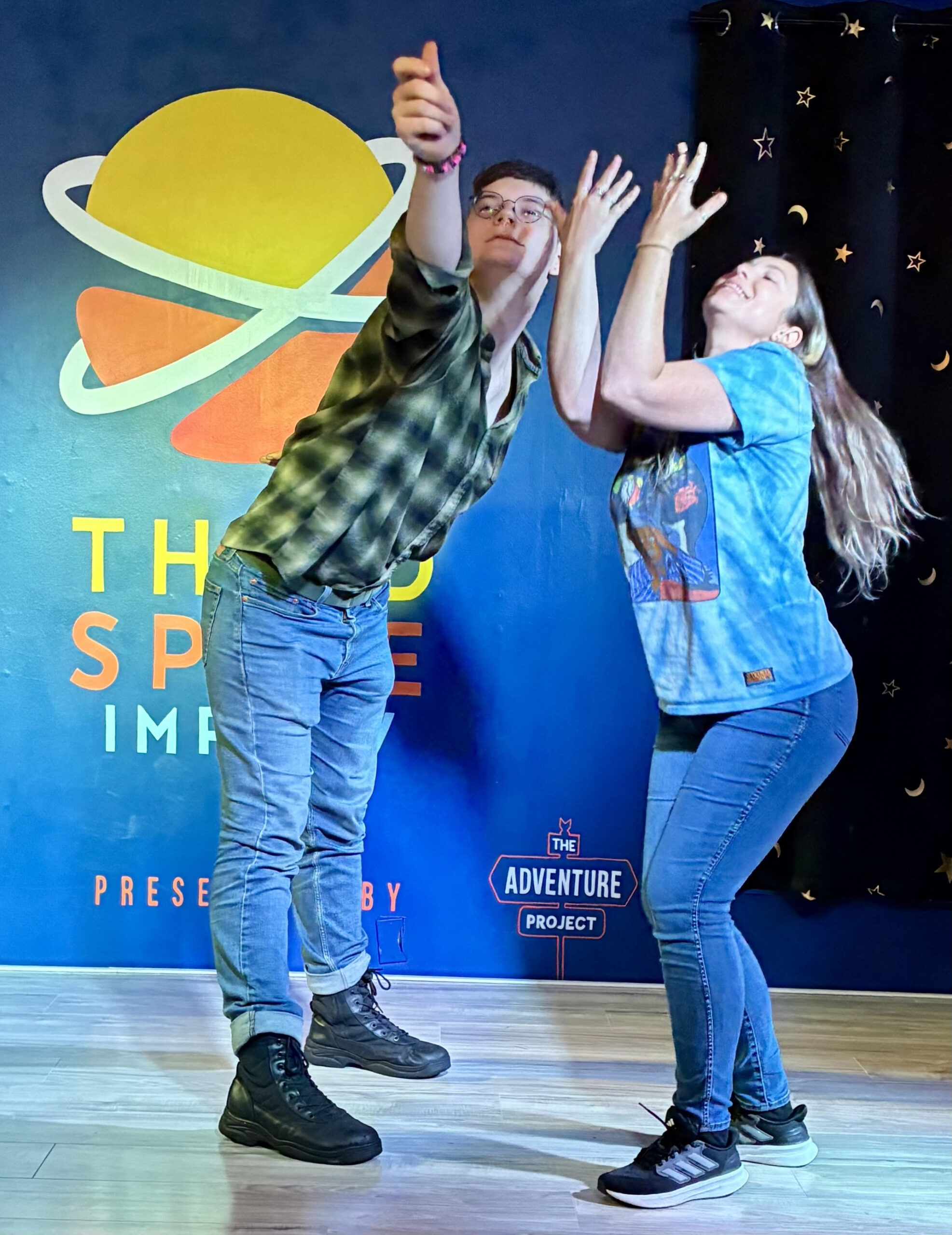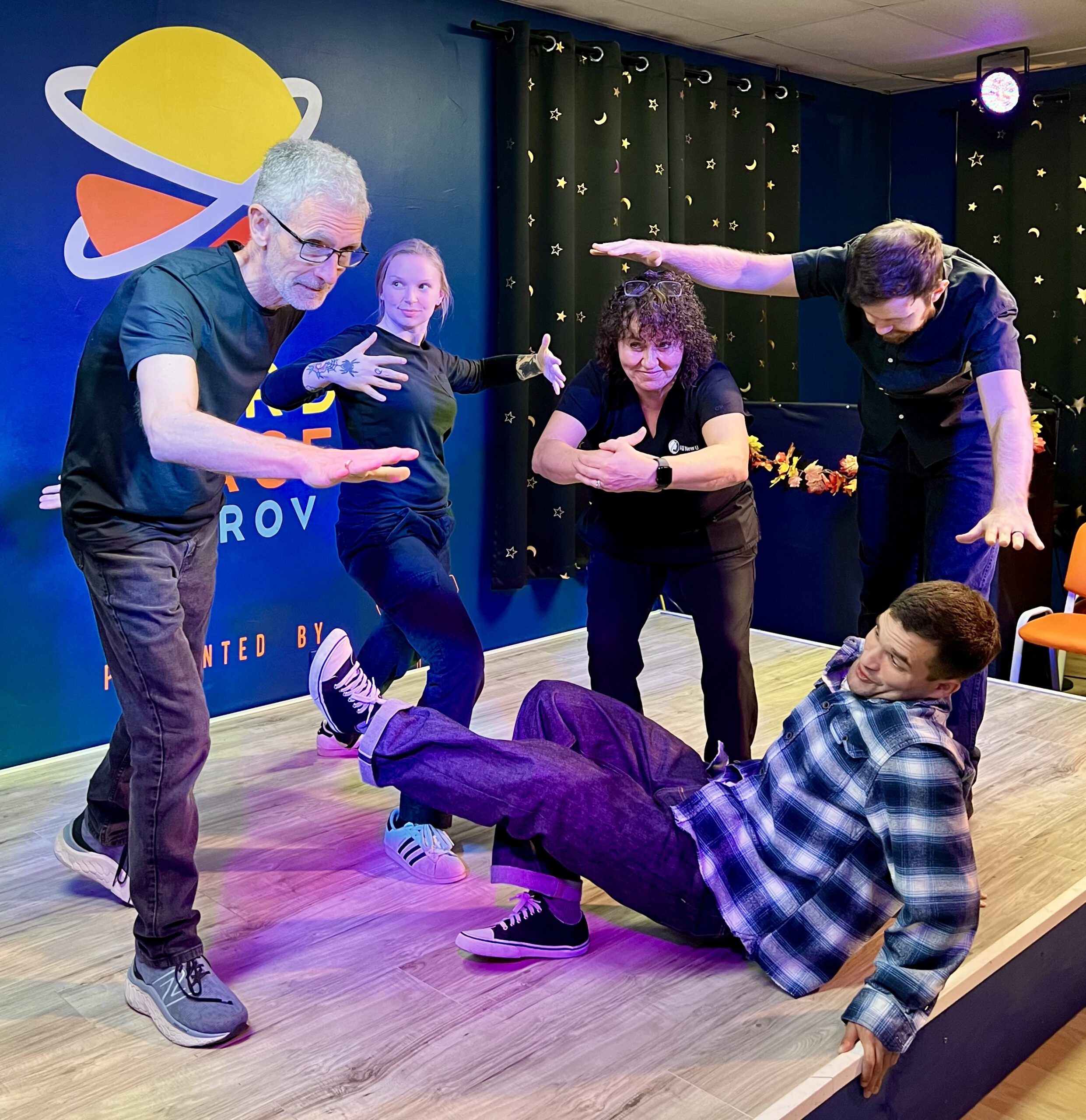Have you ever walked into a group space to find out you’ll be participating in experiential learning? Look around the room at the faces and the body language. Do you see clenched fists? Maybe people have started to grind their teeth a bit. Perhaps there’s even a sudden line at the rest rooms. Believe it or not, the first night of a level 1 improv class can be like this.
Why?
Because people don’t always trust others when it comes to group experiences. Watching a presenter, taking notes in a class, attending training online is safe. However, when it comes to getting into the space, interacting as a group and pushing the comfort zone boundary, the stakes are higher. Whether you have an active role in leading the group, or whether you are a participant, practice these four pieces of improv wisdom to ease discomfort:
1. Show up – Yes, this seems so obvious that it’s almost a waste of space to even mention, right? Not necessarily. When we talk about showing up, we really mean having a presence. Be in the space. Be with the group. Actively listen and engage. Stay off of electronic devices and instead make eye contact. When you’re completely in the moment, you’re more likely to be supported and more readily able to offer support. When I host Yes Minglers, which are playful events to get people intentionally connecting, I often collect cell phones at the door. Why? To reinforce the idea of being “here now.”
2. Communicate – If you have information that would benefit the group, share it. If you have experiences the group would be interested in, share them. If you have neither, ask the group an open ended question and use it as an opportunity to get people sharing, and, most importantly, connecting. One of my favorite camp counselors has a wonderful question he uses to get people interacting, “Can you share one highlight of your travels, your work, your summer, etc.?” It works every time.
3. Be approachable – A smile goes a long way. I recently attended an Applied Improv Network World Conference and at the opening session, a new person to the event approached me to be her partner because I smiled at her when she walked into the room. Bam! A friendly face on a stranger enables a newcomer to seamlessly transition into unfamiliar territory. No matter your status, be open to engaging.
4. Walk the talk – Once we settle into the shared group experience and come out on the other side with more knowledge and connection, don’t put it in a box and set it on the shelf – use it. Whether we are attending a corporate training or a personal development retreat, we must use what we’ve experienced. Only then can we start to see positive changes in our work, in our communities and in our world. — and yourself.
-Amy Angelilli, Owner + Ringleader, Third Space Improv






